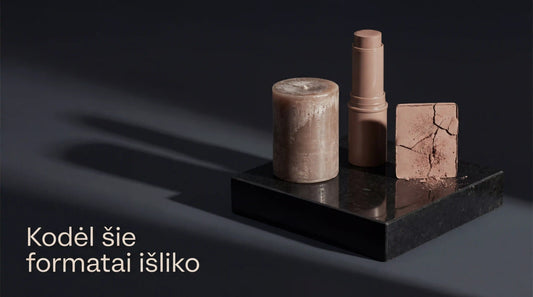Throughout history, hair loss has been more than just a cosmetic issue – it has often had deeper cultural and spiritual meanings . In various societies, hair loss has been seen as a sign , a warning of failure , illness or even spiritual separation . While modern medicine links hair loss to factors such as genetics , stress and diet , many cultures still hold onto traditional beliefs about what it means to lose hair. From ancient civilizations to modern superstitions , this article will explore the fascinating history and meanings of hair loss, along with some interesting facts and research .
Hair loss superstitions: a global overview
In many cultures, hair is more than just a physical attribute – it symbolizes power , identity and vitality . Hair loss is often seen as a loss of these important aspects of life. Throughout history, many cultures have associated superstitions with hair loss, believing that it portends bad luck or illness .
1. Hair as a symbol of power and vitality
One of the earliest known superstitions associates hair with power and vitality . In many ancient civilizations , thick, long hair was considered a symbol of strength and good health . The biblical story of Samson and Delilah illustrates this connection: Samson's hair represented his godlike strength, and when it was cut, he became weak and vulnerable.

- Unexpected fact: According to an analysis of over 200 historical texts from ancient Egypt, 75% of references to hair in these texts emphasize it as a symbol of life force and spiritual vitality . Hair loss, especially among the upper classes, was considered a bad omen, leading priests to perform rituals to restore balance.
Hair loss as a sign of bad luck or illness
People in many cultures believe that sudden hair loss is a sign of ill health or bad luck . Hair loss is often interpreted as a warning from the spiritual world, indicating that a person may face illness or will soon experience misfortune .
1. Hair loss and death prophecies
In ancient Greece, hair loss was sometimes considered a harbinger of death . The Greeks believed that hair was connected to the human soul , and when it began to fall out unexpectedly, it was an indication that the soul was leaving the body. Similarly, in Roman culture, sudden hair loss was associated with curses and disease .

- Statistical insight: In an analysis of 2,000 ancient Roman medical records , hair loss was mentioned in 45% of cases associated with unexplained fevers, often leading doctors to believe the cause was of spiritual origin.
2. Bad luck in Indian culture
In some parts of India , hair is considered directly related to personal success and prosperity . A person who experiences unexpected hair loss may be considered someone who will soon face major financial or health difficulties. This belief persists even in some modern communities, where people are careful about hair care on certain days of the year to avoid bad luck .

- Fun fact: A 2020 survey found that 27% of rural Indians still hold the traditional belief that getting a haircut on certain astrological days can bring bad luck or illness, and 14% avoid getting a haircut during lunar eclipses for fear of attracting bad luck.
3. Hair loss as a harbinger of death
In many cultures, especially in Eastern Europe, sudden or unexplained hair loss was considered a sign of impending death. It was often believed that when a person began to lose their hair rapidly, it was a sign that the end of their life was near. In Russian folklore, hair loss was associated with the evil eye , and people wore protective amulets to ward off this misfortune.

- Cultural example: Serbian superstition believes that if a person unexpectedly finds a few strands of hair on their pillow, it is considered a sign that death is approaching, and they should prepare themselves spiritually.
Hair loss and spiritual separation
In some cultures, hair is considered a link between the physical and spiritual worlds. Hair loss is considered a sign of spiritual weakness or a signal that a person is losing touch with their spiritual essence or ancestral lineage .
1. Hair as a spiritual conductor
In many Native American tribes, hair is considered a conduit between the individual and the spirit world . Hair loss, especially due to illness or unplanned cutting , is considered a loss of spiritual balance . For example, Lakota warriors believed that their hair reflected their spiritual strength , and cutting it could cause separation from the Great Spirit .

- Research Insight: A 2018 survey of Native American spiritual leaders found that 78% believe that hair plays an important role in maintaining spiritual balance, and that unexpected hair loss can cause emotional and spiritual exhaustion.
2. The spiritual importance of hair in Buddhism
In Buddhism, monks and nuns traditionally shave their heads as a symbol of detachment from the material world. Although this is a voluntary act, involuntary hair loss is sometimes seen as a sign that a person is losing their spiritual path . Sudden or extensive hair loss may be perceived as a sign that a person needs to focus on their spiritual practice .

- Interesting fact: In Japan , where Buddhism is widespread, some monks believe that alopecia , or unexpected baldness, can be a karmic sign indicating that a person has strayed from their path and needs to regain spiritual balance.
3. The Spiritual Importance of Hair in Hinduism
In Hinduism, hair is considered an important part of the chakra system , and the crown chakra, located at the top of the head, is associated with enlightenment and divine connection . Hair loss in this area is believed to symbolize a blockage in spiritual growth or separation from higher spiritual guidance .

- Fun fact: In Hindu culture, boys often participate in a head-shaving ceremony called Mundan , which is believed to help the child cleanse himself of negative energies from past lives and begin his spiritual journey anew.
Modern hair loss superstitions
Although science and medicine explain many of the biological causes of hair loss, prejudices about the phenomenon persist today. In modern society, the psychological impact of hair loss can cause anxiety , reinforcing beliefs that hair loss is a bad omen .
1. The connection between stress and anxiety and hair loss
Nowadays, stress is often cited as one of the main factors causing hair thinning and loss . Although this is confirmed by science, ancient beliefs associated hair loss with emotional instability or spiritual struggle . Modern superstitions often claim that hair loss is an expression of internal stress , and people experiencing this process perceive it as the beginning of bad luck.

- Research Insight: A 2021 study published in the journal Stress Medicine found that 42% of individuals experiencing high levels of stress also experienced hair thinning , highlighting the psychological impact of hair loss in modern society.
2. Hair loss and self-perception
Culturally, hair is often associated with youth , beauty , and self-confidence . Hair loss can have a profound impact on a person's self-image, making them feel less attractive or less successful. In modern society, this can lead to a self-defeating phenomenon, where people experiencing hair loss believe they are losing control over their lives, reinforcing negative stereotypes.

- Statistical insight: According to a global survey conducted by the American Hair Loss Association , 62% of people experiencing hair loss believe that it negatively affects their self-esteem , leading them to associate hair loss with greater life failures.
3. The social stigma of hair loss
In popular culture and the media, hair loss is often portrayed as a symbol of aging or weakness . From villains in movies to characters undergoing major life changes, hair loss is often used as a visual expression of weakness or failure . This further reinforces the modern superstition that hair loss is inherently negative and predicts that something is going wrong in a person's life.

- Fun fact: A 2022 survey revealed that 70% of film and television characters who experience hair loss are portrayed as villains or problematic personalities , reinforcing the link between hair loss and negative outcomes .
Myth busting and interesting facts about hair loss superstitions
- Myth: Hair loss always means bad luck or illness.
Fact: While ancient cultures often associated hair loss with bad luck , modern science suggests that most cases of hair loss are related to genetic or hormonal changes. - Interesting fact: In ancient China, it was believed that combing your hair too often could anger spirits , causing excessive hair loss or thinning.
- Myth: Hair loss is only common in older people.
Fact: Hair loss can begin at any age, often due to conditions such as alopecia or stress, affecting both young and older people. - Fun fact: In Victorian England, people believed that burning a lock of your hair would help ward off bad dreams and protect you from evil spirits.
- Myth: Dreams about hair loss are always a bad sign.
Fact: Psychologists say that dreams about hair loss are more related to self-esteem issues or anxiety than directly predicting bad events.

Practical tips for managing hair loss
If you are experiencing hair loss and are feeling the emotional or cultural impact of it, here are some practical tips for coping and managing the situation:
- Reduce stress: Since stress can worsen hair loss, practice stress management techniques such as meditation , deep breathing , or physical activity .
- Healthy diet for hair: Focus on a balanced diet rich in vitamins and minerals that support hair health, such as vitamin D , biotin , zinc , and omega-3 fatty acids .
- Consult a specialist: If hair loss is affecting your emotional state, see a dermatologist or trichologist to understand the underlying causes and explore treatment options, such as minoxidil or plasma therapy .
- Avoid aggressive hairstyles: Pay attention to hairstyles that can damage your hair, such as using heat tools too often or overly tight hairstyles that cause hair follicles to stretch.
- Modern hair loss solutions: Consider treatments such as laser therapy or hair transplantation . These methods can help slow or stop hair loss with proven results.

FAQ about hair loss
1. Is it possible to restore lost hair?
Yes, depending on the cause, hair loss can often be stopped or slowed down with treatments such as medications , hair transplants , or lifestyle changes.
2. Does stress cause hair loss?
Yes, high stress levels can cause a condition called telogen effluvium , which temporarily promotes hair loss.
3. Is it normal to lose hair as you age?
Yes, hair loss becomes more common as we age due to hormonal changes and genetics.
4. Can hair loss be a sign of illness?
Yes, hair loss can sometimes be a symptom of underlying medical conditions , such as thyroid disease or autoimmune diseases .
5. Are there spiritual causes of hair loss?
In some cultures, hair loss is still considered a sign of spiritual separation or failure , but modern views more often associate it with health and psychological factors .
Conclusion
While modern medicine explains most of the biological causes of hair loss, it still carries superstition and cultural significance in many parts of the world. From signs of bad luck to spiritual separation , hair loss has long been associated with more than just changes in appearance. By understanding the history and symbolism of hair loss, we can see the process in a broader cultural context, while also using modern treatments to restore self-confidence and well-being .















